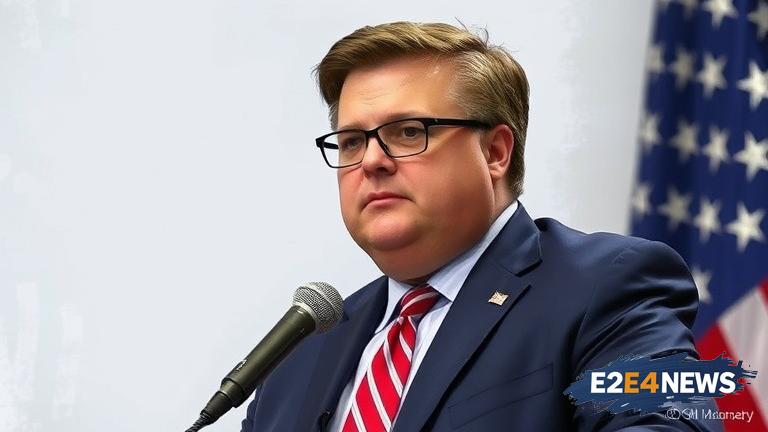US Senator JD Vance has sparked a significant debate by defending tariffs imposed on India, stating that these economic measures are essential as leverage to influence Russia’s stance on the ongoing Ukraine war. Vance’s stance underscores the complex geopolitical landscape where economic policies are increasingly intertwined with international relations and security. The tariffs in question are part of a broader strategy by the US to exert pressure on nations it believes can influence Russia’s actions in Ukraine. India, with its historical ties with Russia, is seen as a key player in this context. Vance argues that by imposing tariffs, the US can create economic incentives for India to use its diplomatic channels more effectively to persuade Russia to seek a peaceful resolution to the conflict. This approach reflects a multifaceted foreign policy strategy where economic tools are used to achieve geopolitical objectives. Critics, however, argue that such tariffs could have unintended consequences, including harming American businesses that rely on trade with India and potentially alienating a crucial ally in the Indo-Pacific region. Despite these concerns, Vance remains resolute, emphasizing the urgency of the situation in Ukraine and the need for all available leverage to be used to bring about a swift end to the conflict. The use of tariffs as a diplomatic tool is not new, but its application in the context of the Ukraine war highlights the evolving nature of international relations. As the global community continues to grapple with the implications of the war, the role of economic sanctions and tariffs as instruments of foreign policy will likely remain a topic of intense debate. Vance’s position also reflects the bipartisan consensus in the US on the need to support Ukraine, with differences primarily revolving around the most effective strategies to achieve this goal. The situation is further complicated by India’s balanced approach, seeking to maintain good relations with both the US and Russia. This balancing act by India is driven by its own strategic interests, including energy security and historical military ties with Russia. Meanwhile, the European Union and other Western allies are watching the situation closely, considering their own economic and diplomatic responses to the war. The impact of these tariffs on the global economy, particularly on trade relations between the US, India, and other nations, will be closely monitored. In conclusion, Senator Vance’s defense of tariffs on India as a means to influence Russia’s actions in Ukraine represents a significant moment in the ongoing geopolitical maneuvering surrounding the conflict. It highlights the complex interplay between economic policy, international relations, and security, and underscores the challenges faced by policymakers in navigating these intricate relationships. As the world moves forward, the effectiveness of such strategies, along with their broader implications for global stability and economic health, will be subject to intense scrutiny and debate. The US, India, and Russia are key players in this drama, with each nation pursuing its interests within the constraints of a rapidly changing international environment. Ultimately, the path forward will require a delicate balance of economic, diplomatic, and military strategies, all aimed at achieving a peaceful and stable world order. The coming months will be crucial in determining the success of these efforts, with the fate of Ukraine and the future of international relations hanging in the balance. The role of the US, under the leadership of figures like Senator Vance, will be pivotal in shaping this future. Furthermore, the response of India and Russia to these economic and diplomatic overtures will significantly influence the trajectory of the conflict. In the midst of these challenges, maintaining open lines of communication and fostering cooperation among nations will be essential. This includes not just the US, India, and Russia, but also other global players who have a stake in the outcome of the Ukraine war. The international community’s ability to navigate these complex issues will define the character of the 21st century’s global order. It is a challenge that requires wisdom, diplomacy, and a deep understanding of the interconnected nature of the world’s economies and political systems. As Senator Vance and other leaders grapple with these issues, their decisions will have far-reaching consequences, affecting not just the immediate parties involved but the broader global community. The use of economic leverage, such as tariffs, is a powerful tool, but it must be wielded carefully to avoid unintended consequences. This is a lesson that policymakers around the world are learning as they navigate the uncharted waters of the current geopolitical landscape. In doing so, they must balance competing interests, manage the expectations of their constituents, and work towards solutions that promote peace, stability, and prosperity for all nations. The situation with India, the US, and Russia serves as a stark reminder of the complexities of international relations in the modern era. It underscores the need for flexible, adaptive policies that can respond to changing circumstances on the ground. For Senator Vance and his counterparts, the task ahead is daunting, but with careful consideration and a commitment to dialogue and cooperation, it is possible to find a path forward that benefits all parties involved. This will require a deep dive into the specifics of trade policies, diplomatic relations, and security arrangements, with a keen eye towards finding mutually beneficial solutions. The world watches with bated breath as these events unfold, aware that the decisions made today will have lasting impacts on the future of global relations and economic stability.
